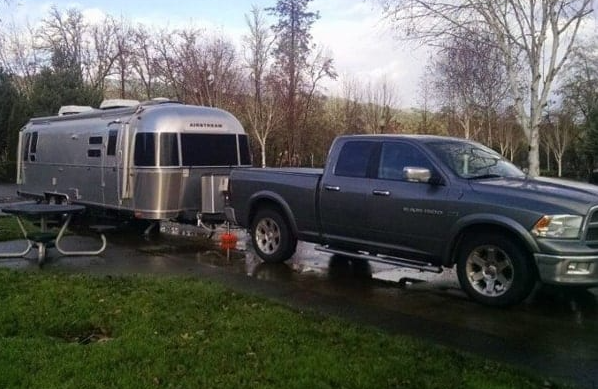
Understanding RV Towing Basics
Towing an RV requires more than just hitching it to your vehicle and hitting the road. It’s essential to understand the fundamentals of towing, including the capacity of your towing, the gross trailer weight, and the gross combined weight rating. These terms help you understand the limits and capabilities of your towing setup, which can prevent dangerous situations such as overloading your vehicle. Ignoring these factors can lead to severe accidents or mechanical failures, which could compromise the safety of your trip.
Modern hitches play a crucial role in the towing setup. Ensuring the proper hitch for your specific RV type is fundamental to safe towing. These hitches are designed to handle various weights and types of RVs, making it easier and safer for you to tow your trailer. Understanding the type of hitch and its capabilities can help you choose the right equipment for your needs.
The Importance of Weight Distribution
Proper weight distribution is crucial for towing stability. Uneven weight can lead to swaying, which is dangerous, especially at high speeds. Swaying can cause loss of control, increasing the likelihood of accidents. Utilizing a weight distribution hitch can help evenly spread the load, enhancing the stability and control of your vehicle. This hitch helps balance the weight between the towing vehicle and the trailer, making it easier to handle and more stable on the road.
Weight distribution also improves braking performance and reduces wear on your towing vehicle’s suspension. It ensures that the weight is not concentrated at one point, which can strain the vehicle and cause premature wear and tear. Refer to this towing safety guide for more detailed weight distribution and safety information. This resource provides in-depth insights into why weight distribution is crucial and how to achieve it properly.
Proper Hitching Techniques
A secure hitch connection is fundamental to safe towing. Follow the manufacturer’s guidelines for hitching your RV, including checking that the hitch ball and receiver fit correctly and that safety chains are crossed under the hitch and appropriately connected. This crossing technique acts as a cradle to catch the hitch if it fails, preventing the trailer from dropping to the ground. Regularly inspect your hitch components for wear and tear, as damaged parts can compromise the safety of your connection.
Proper hitching also involves ensuring your trailer is level with your towing vehicle. An uneven setup can lead to swaying and handling difficulties, making your journey more stressful and dangerous. Adjust the hitch height if necessary, and always double-check your connections before hitting the road. These simple actions can significantly improve the safety and comfort of your towing experience.
Regular Maintenance Tips
Regular RV maintenance, including oil changes, tire pressure checks, brake inspections, and lights and signals, is crucial to prevent breakdowns and accidents. Monitoring specific components like roofs, windows, and seals can save money and identify problems early. A comprehensive RV maintenance guide provides a detailed checklist and tips.
Inspections Before You Hit the Road
Before a trip, thoroughly inspect your RV, checking tire condition, electrical system operation, hitch security, and brake system. Ensure proper braking, especially when towing heavy loads, and check battery and electrical connections for reliability. These checks can identify potential problems before they become serious, making travel safer and more enjoyable.
Road Conditions and Driving Tips
Towing safely requires awareness of road conditions and safe driving techniques. Check weather forecasts and avoid sudden maneuvers to maintain control. Use mirrors to monitor traffic and blind spots. Stay updated on road and weather reports to plan routes effectively. Real-time updates from websites like Weather.com can alert you to potential hazards and help you choose alternative routes.
